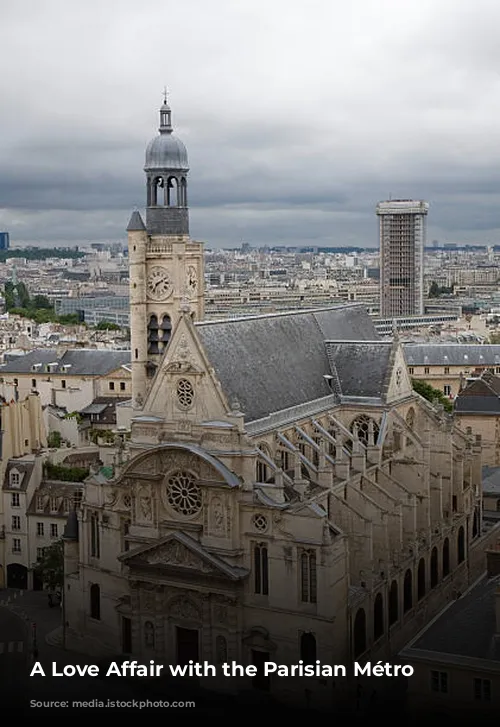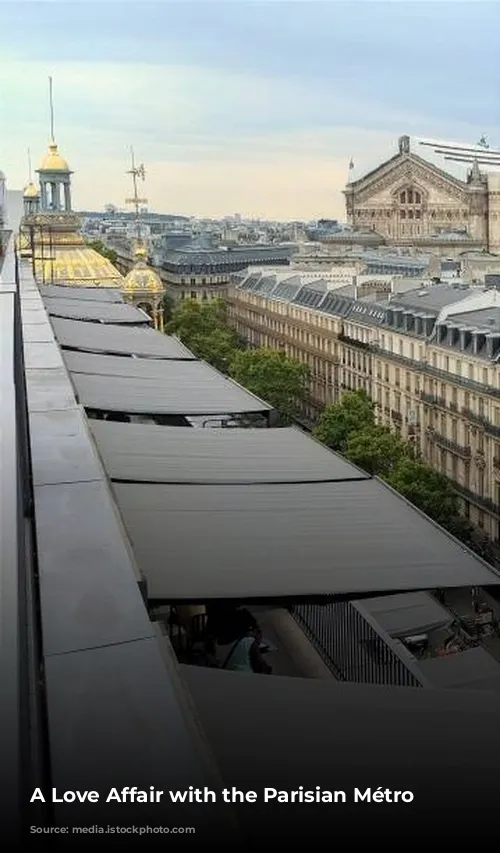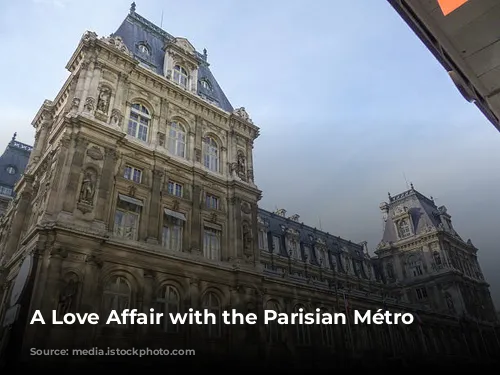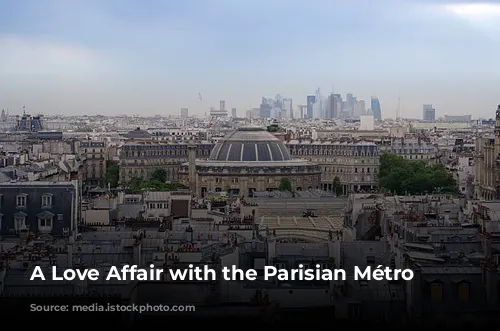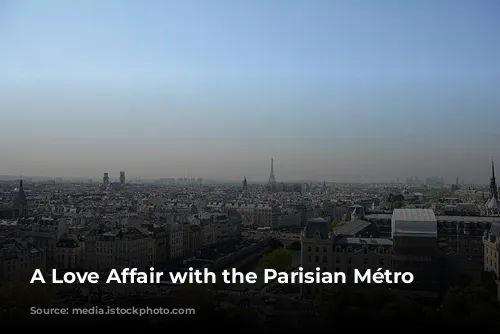Have you ever felt a deep connection to a city’s subway system? For me, it was love at first ride. In the chilly winter of 1992, my journey through the Parisian métro began. My then girlfriend, now my wife, was studying in the heart of Paris, and I would make frequent weekend visits from London. While she toiled away on her doctorate, I’d find myself venturing out into the city, often on the métro. At first, I saw it as a means to reach museums and galleries, but soon, the métro itself became my destination.
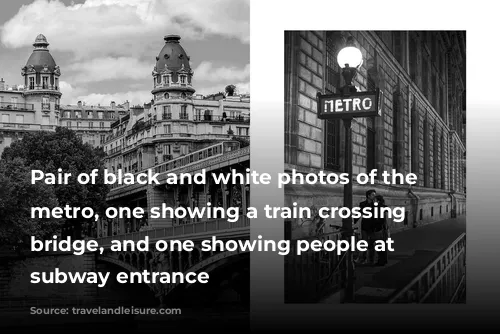
The Métro’s Past and Future
My love for the métro was reignited during research for my book about its history. While immersed in the details of the Grand Paris Express project, I couldn’t help but reflect on my early experiences. This ambitious expansion, slated to be fully operational by 2030, is set to transform the Parisian subway. The project will add four new lines to the existing 14, bringing 68 new stations and 125 miles of track to the network. This expansion will nearly double the size of the existing métro system, a feat that has attracted the attention of prominent architects like Kengo Kuma, who are designing sleek and impressive stations.
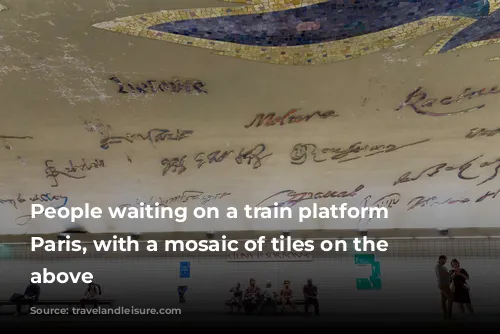
A Sunday Journey Through the Metro’s Heart
However, for me, nothing evokes the Parisian spirit quite like the old métro. One Sunday, I decided to embark on a nostalgic journey, choosing a route that had become a favorite of mine. My adventure started at Campo-Formio station, nestled beneath Boulevard de l’Hôpital in the 13th arrondissement. This station is one of the few remaining examples of the iconic entrances designed by Hector Guimard, the celebrated Art Nouveau architect. Most of these entrances, including Campo-Formio, are adorned with a pair of Art Nouveau lamps, resembling giant lily of the valley flowers. These “flowers,” illuminated in red at night, resemble the watchful eyes of dragons.
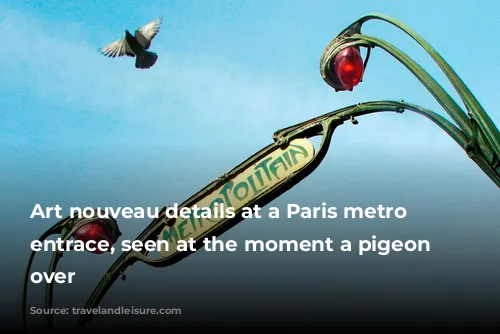
A Journey Back in Time
Stepping into the station, I followed the signs for Line 5, direction Bobigny. As I descended into the depths of the métro, I paused to admire the simple, consistent architecture of the old system. A basic vault spans over the two tracks and platforms, offering a sense of timeless elegance. My gaze fell upon the tiles lining the walls, their beveled edges sparkling under the electric lights. The white tiled surfaces, aside from the blue and white station sign, evoke a sense of quiet dignity. I remembered a comment a French historian once shared over lunch, “A métro station resembles a wine cellar of a château, which is a very nice thing to be reminded of.”

From the Seine to the Bastille
I boarded an MF01 train, a modern addition to the system, yet still possessing the tall, slender elegance that has always defined the métro. As the train made its way towards the Seine River, it emerged from the underground, steadily climbing until it pierced the grand glass hall of Gare d’Austerlitz, a central Paris railway station. We then exited the station through the opposite side, crossing the river. To the left, the majestic Notre Dame Cathedral stood tall, while to the right, the towering glass skyscraper housing the RATP, the local transit authority, dominated the skyline. The train then plunged back underground, its descent marked by a sharp turn past the Paris morgue, a place where thousands of autopsies are performed each year. This sudden curve, as the train disappeared beneath the ground near the Bastille, reminded me of my very first journey across the Seine. It was a moment of intense wonder, leaving me eager to repeat the experience to ensure it hadn’t been a mere dream.
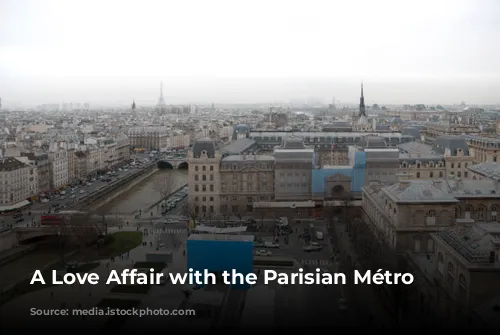
A Glimpse of Paris’s Glamorous Side
I disembarked at Bastille and transferred to Line 1, heading towards La Défense. This line, known for its extravagant embellishments, connects many of the city’s major tourist attractions. Some stations are designated as “cultural stations” and have been meticulously ornamented, showcasing the artistry of the métro. At Louvre-Rivoli, replica statues grace the platform alcoves, bathed in a reverent low light. Some stations on Line 1 have flat roofs, built near the surface to avoid the water table of the nearby Seine. Overhead, riveted girders, painted purple at Palais Royal–Musée du Louvre, and red at Concorde, highlight the straight lines of the roof, adding a touch of industrial charm.
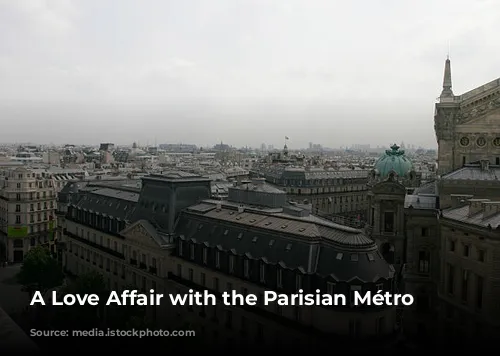
Discovering the Métro’s Diverse Character
At Concorde, I changed to Line 12, heading towards Mairie d’Issy. While most of the métro was built by the Paris Metropolitan Railway Co. in 1900, Line 12, and a portion of Line 13, were constructed a decade later by a rival company, the Nord-Sud Underground Electrical Railway Co. While this company retained the signature white sparkle of the original métro tiles, they added pops of color, using colorful tiles around poster frames and along vaulted roofs. The accents are brown at ordinary stations, like Solferino, and green at junctions like Pasteur. While many stations have undergone tile replacements over the years, the tiles at these two stations remain original, dating back to 1910 and 1906 respectively. Their rich luster and fine cracks, reminiscent of an oil painting, tell a story of time and resilience.
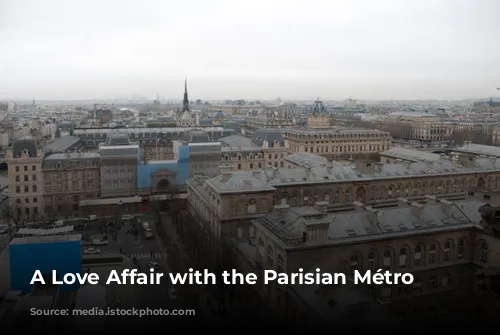
A Ride Above the City
At Pasteur, I hopped on Line 6, heading for Charles de Gaulle–Étoile. As the train left the station, it rose above the city, running on silvery pillars and offering breathtaking views of the 15th arrondissement’s dignified boulevards, lined with third-floor apartments. This journey culminated in a remarkable river crossing on the Bir-Hakeim bridge, a double-decker bridge shared by the métro and a roadway. The iconic Eiffel Tower, positioned to the right, dominated the skyline, a reminder of the city’s enduring allure. Despite this breathtaking sight, most Parisians, engrossed in their phones, seemed oblivious to the grandeur around them.
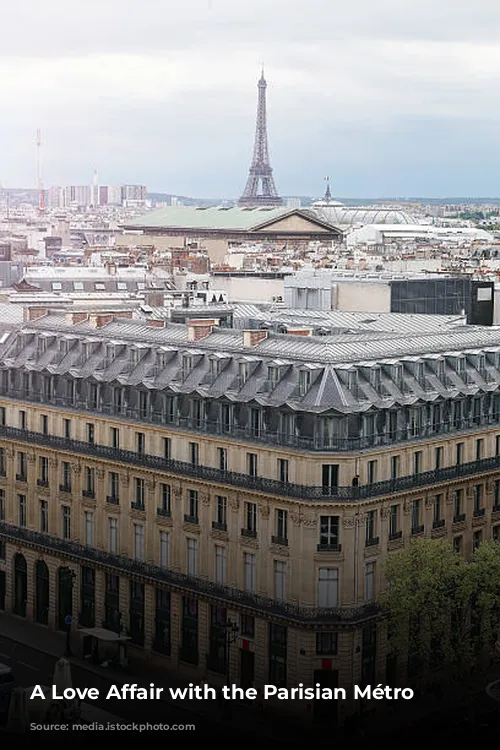
A Farewell to the Dragon’s Eyes
I finally disembarked at Passy station, casting a last glance at the bridge. Night had fallen, casting a soft glow on the antique lanterns, illuminating the city. And, across Paris, the dragon’s eyes blazed red, their watchful gaze reminding me of the city’s enduring magic.
The Parisian métro is more than just a mode of transportation; it’s a journey through time, a canvas for art and architecture, and a reflection of the city’s soul. My love affair with the métro continues, each ride a new adventure, a testament to the city’s enduring charm.
